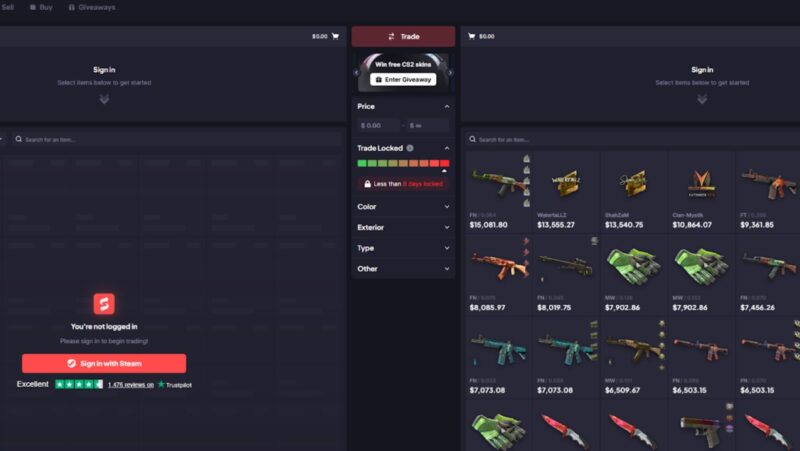The Free-to-Play Effect: How Casino Closures Boosted Online Slot Demos

The closure of casinos across Europe, particularly in the Netherlands, disrupted established patterns of play. Regular visitors suddenly had no physical venues, and that gap left players exploring new ways to stay engaged. Some drifted towards unregulated operators, drawn in by easy access but exposed to risks ranging from unclear odds to poor security.
Alongside this, another trend emerged. Legal online platforms began to highlight free versions of casino games, offering a digital “demo mode” similar to trial content in mainstream gaming. The approach gave players a way to stay connected without spending money, keeping interest alive while removing immediate financial stakes.
Free-to-Play Logic Gamers Already Know
Digital gaming culture has long normalised the idea of testing before paying. Console players download demos, shooters run practice ranges, and free-to-play titles dominate mobile charts by letting people try full mechanics without cost. The same principle applies in casino play.
Free slot versions echo these models. They let users experiment with reels, paylines, and features in a setting that feels closer to training than wagering. Like trial modes in video games, the appeal lies in discovery, understanding timing, mechanics, and flow, without the pressure of money on the line. This shared language between gaming and gambling explains why demo slots slot so easily into wider digital habits.
The Netherlands Example: Closures, Risk Drift, Safer Alternatives
When casinos in the Netherlands shut their doors, it highlighted how quickly habits can shift. Licensed venues had once provided structure and oversight, but without them, players were faced with a choice. Some moved into unregulated spaces, where oversight was absent and the games offered no independent verification.
At the same time, the regulated online market responded by pushing free versions of familiar titles. These browser-based options allowed players to continue engaging with the format while avoiding the hazards tied to unlicensed operators. Slots, blackjack, and roulette could all be explored in demo form, offering continuity without the risk of hidden charges or questionable game integrity.
The whole episode showed the importance of having safe, no-cost options available. By keeping players inside transparent ecosystems, free demos reduced the pull of black-market offers and reinforced the role of regulated providers in maintaining trust.
Why Free Slots Work as “Practice Mode”
Slot demos give players a chance to understand how the mechanics function before any money changes hands. By experimenting with paylines, volatility levels, and bonus triggers, users build familiarity with systems that can be difficult to get the hang of.
This practice aspect mirrors training modes in competitive gaming. Just as players might run drills to learn maps or refine timing, demo slots allow for repeated exposure to features and outcomes until they feel second nature. Experience eventually brings a stronger grasp of pacing, bankroll management, and realistic expectations, elements that are harder to appreciate without first-hand interaction.
The benefit lies in control. With no financial stake, the player sets the rhythm, testing strategies or exploring new titles without pressure. That freedom makes demos not only safer, but also more informative than a blind leap into real-money play.
Playing It Safe with Browser-Based Slots
One reason free demos carry added value is the way they strip out technical risks. Unlike downloadable casino apps or third-party installers, most free slots run directly in the browser. That means no extra permissions or hidden background processes, nor is there any need to install software that could expose a device to vulnerabilities.
Security comes not just from the absence of downloads but from the environment itself. Browser play is sandboxed, updates are automatic, and connections are typically secured through HTTPS. For players, the process is simple: open a game, try it, and close the tab. Nothing lingers afterwards.
This lightweight format makes demos well suited to cautious users. They deliver the learning experience without requiring trust in external files or systems, which reduces both friction and exposure.
Learning First, Spending Later
Free slots carry another advantage often overlooked: they encourage players to focus on learning before money enters the equation. Every demo session builds a level of literacy, not only in recognising paylines or bonus rounds but in spotting how different games pace their rewards. That knowledge makes the eventual transition to real-money play, if chosen, more considered. Curious slot fans who want to avoid financial risk can turn to free online versions as a safe entry point, and an expert guide from iGamingNuts to slot demos and free slots helps newcomers understand the mechanics before committing real money.
Spotting and Avoiding the Black Market
While demo play offers a safe route, the shadow of unlicensed operators remains. These platforms often mimic the look of regulated sites but lack basic safeguards. The signs of an untrustworthy venue are out there and can be anything from a missing licence to pushy pop-ups promising oversized bonuses. Vague contact details are also a red flag.
Some go further, requiring downloads or personal data before a game can even be launched. Without independent testing, there’s no guarantee that outcomes are fair or that winnings, if promised, will ever be paid. By contrast, free demos in regulated ecosystems remove these doubts entirely. They provide a controlled space where the mechanics can be learned without handing over information or risking exposure to unsafe software.
Recognising the difference between transparent platforms and black-market operators is now part of digital literacy. Knowing how to spot the signs helps players stay with providers that value clarity over quick sign-ups.
Tips for Safe, Smart Demo Use
Free slots are built for low-risk exploration, but using them with a bit of structure makes the experience even more valuable. Setting a time limit keeps sessions focused and prevents endless spins that don’t add to learning. Rotating between different titles also helps, as mechanics vary from game to game and broaden understanding beyond a single style.
Paytables are worth checking too. Even in demo mode, they reveal how symbols combine, what bonus features trigger, and the likely frequency of payouts. Trying small adjustments, like changing bet size or lines, shows how outcomes shift without financial consequence.
Finally, avoid any site that insists on downloads or extra permissions for free play. A demo should load in the browser, run smoothly, and close without leaving anything behind. Keeping it that simple means the focus stays on learning, not dealing with unnecessary risk.
The shift toward free demos reflects a broader change in how people interact with digital content. Audiences now expect to try things out before making any kind of commitment, whether that’s sampling a new game, testing a streaming service, or running a subscription calculator. Casino titles are no different. Demo play is no longer a stopgap from the days of lockdowns but part of a wider digital culture built on trial access and transparency.
Free slots now serve a purpose beyond just passing time. They build confidence, set expectations, and keep engagement grounded in clarity rather than persuasion. In a market where trust decides whether players return, demos stand out as one of the simplest and most reliable tools available.







